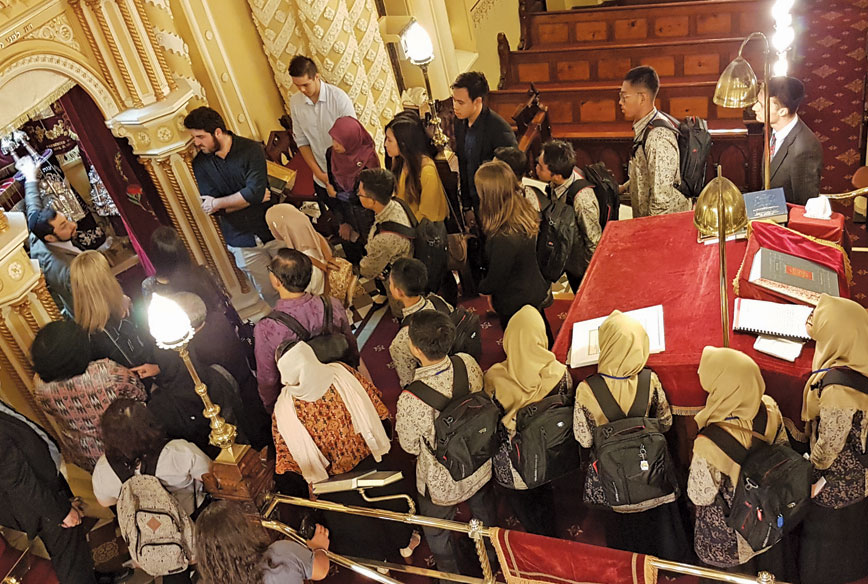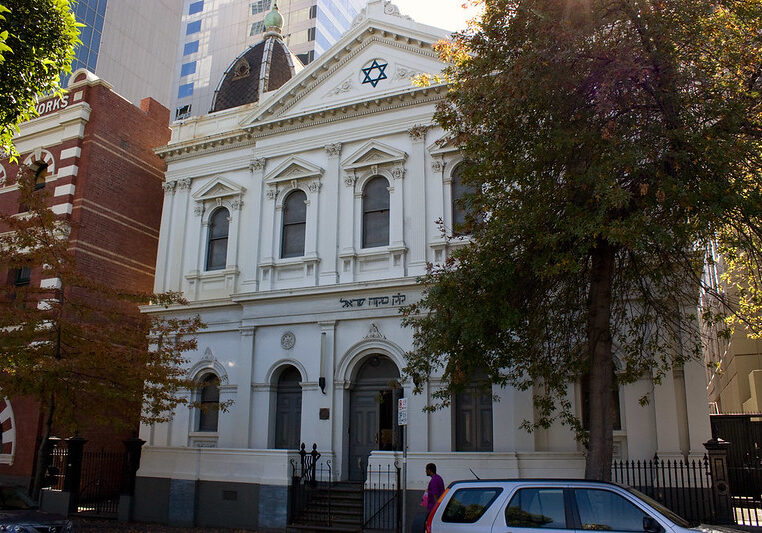Australia/Israel Review
The Last Word: Rules of Engagement
Apr 3, 2018 | Jeremy Jones

Jeremy Jones
The visits to Australia by leaders of the ASEAN nations drew attention to the complexities and nuances of regional relationships. The countries, their economies, politics and cultures, and the personalities of some colourful heads of state, were media fodder, while the content of some technical and pragmatic discussions were shared quite selectively with the public.
Similarly, there were numerous constructive and positive interactions between Australians and the delegations from the countries to our near north, which were under the radar.
Quite a few Sydneysiders would have seen a group of 30 or so, mainly young, Indonesians, together with a few Australians, walk together from the NSW Parliament House to the Great Synagogue.
Sydneysiders who stopped any of the group to ask were informed that the group was part of the large contingent accompanying the Indonesian President, and that they had just been introduced to the operation of politics in New South Wales and were on their way to learn about interfaith relations, specifically between Muslims, Jews and Christians.
Having been asked by the Indonesian Foreign Ministry, via a local imam who is a long-time colleague and friend, to be the main speaker in the synagogue, I can report first hand on the thirst for knowledge on display.
None of the young Indonesians had ever met a Jewish person, nor even imagined being in a synagogue, let alone in a majestic, historic Jewish house of worship.
The meeting was not open to the public, but I will report that there was not a shred of hostility. There was a number of genuine questions sourced in some negative presentations of Jews and Judaism – questions asked politely and personally rather than during the formal sessions.
The initiative, taken from within the Government of Indonesia, to use the ASEAN event to foster better inter-religious understanding – including opportunities to redress misconceptions of Jews and Judaism which, most scholars agree, are integral parts of the philosophies behind many terrorist and extremist movements – is to be commended.
To its credit, the Australian Government has, for more than a decade, included meetings with Jews and other non-Muslims on the itineraries of groups of up-and-coming young leaders from Indonesia who participate in the Muslim Exchange Programme.
A large percentage of Muslims on these programmes whom I have had the opportunity to meet and address remain in contact with me – and barely a day goes by that I don’t receive a question, observation or comment from one of them. I hope that the President’s group also do not feel hesitant in coming forward with inquiries.
My previous column was written during the “End to Antisemitism!” conference at the University of Vienna, and this column is being sent from Jerusalem, where I am attending the Sixth Global Forum for Combatting Antisemitism.
The events have different emphases and draw on different expertise, with some overlap, but each promoted the importance of identifying, not just the challenges, but solutions.
The New Politics and the New Media, two of the central themes of the Jerusalem conference, seem to have intensified pressure, discomfort, insecurity and dissatisfaction with previous strategies employed by those actively opposing antisemitism.
But new thinking has also provided opportunities for innovation in engagement with other religions.
Among the speakers at the Jerusalem conference is an impressive European Islamic leader who I met at a conference in Indonesia four years ago. I then encouraged him to explore how he could be part of the unambiguously moral cause of combating anti-Jewish bigotry, prejudice and hate.
To me, his presence (and ongoing contributions) testifies to the importance of the work of reaching out and engaging – particularly with those many thinking, decent, intelligent people who, due to geography or other factors, have only known Jews courtesy of stereotypes and distortions.
Tags: Antisemitism, Indonesia






